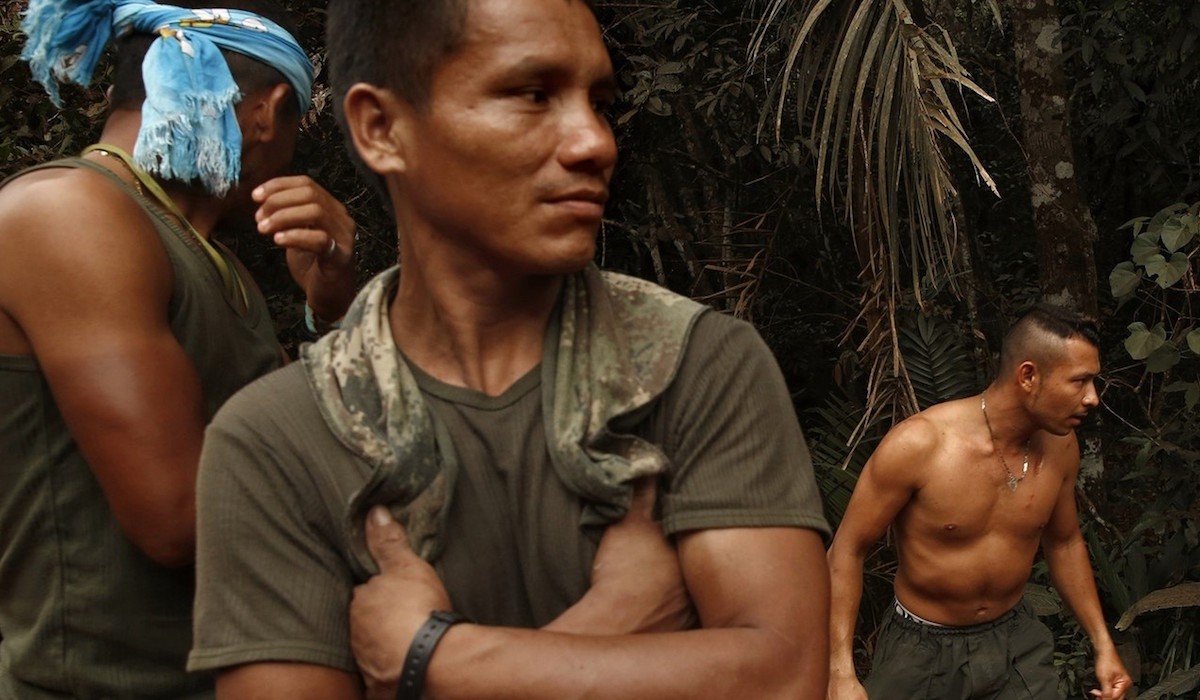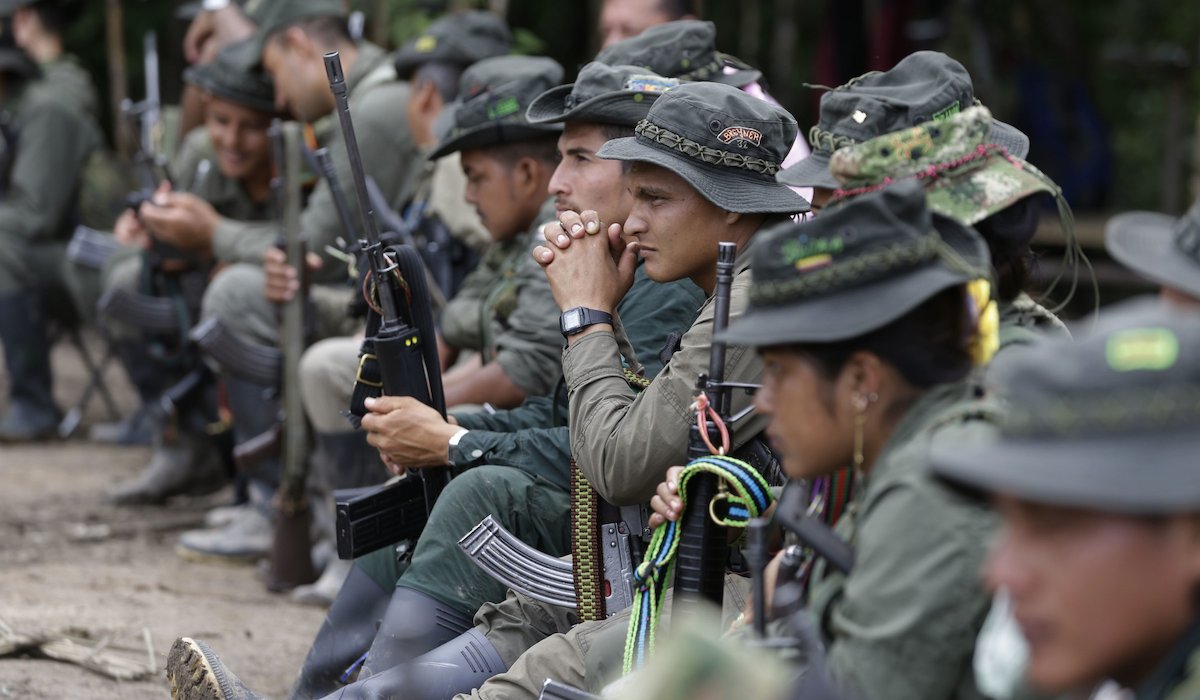Despite the attempts by the Colombian government to eliminate the FARC terrorist organization, including the landmark signing of the 2016 Havana Accords, the terror arm of the group in fact still persists. The accords, which offered amnesty to members of the terrorist organization along with 10 guaranteed seats in congress regardless of voting through 2024, a monthly stipend and cash for new business ventures, were not universally excepted by the group and many so-called “fronts” continue to wage war against the government.
In the jungles Colombia’s Nariño Department in the country’s southeast, “Aldemar“, as he is called, insists that the fight will continue. Aldemar, a 32-year-old man, is one of the members of the FARC terror organization and leads the 29th Front. Armed with an M-16 rifle and wearing a mask to conceal his face, Aldemar insists that the real FARC are still alive and well, and armed to the teeth.
“The FARC are still alive, and this peace never got to the jungle in the southeast of Colombia”, he said defiantly.
Aldemar’s 29th Front represents only one of many groups that were expelled by the FARC leadership after they refused to agree to the terms of the accords signed with the government. They are not small in number and are ubiquitous throughout many regions of Colombia.
“Dissidents?“, he said angrily. “We haven’t changed a thing from our ideologies. We are still revolutionaries who seek power for the people through political and military means”.
Aldemar said that his group’s name remains the Revolutionary Armed Forces of Colombia (FARC). The group are traitors that have, in the mind of these revolutionaries, sold their soul for cash and influence.
“Even though they are traitors, we will not attack them, provided that do not become state agents and that they respect our property. In our zones, we will treat them as any other political party”, Aldemar said.
In fact, most local coca farmers recognize these groups as the real FARC, the authority that regulates every aspect of social life, including drug trafficking. These farmers also complain of begin abandoned by their government, who they view as being more interested in the best interests of the United States.
“Colombia has now returned to being the biggest cocaine producer in the whole world, and we are still the FARC, but our military strategy has changed because of our so-called ‘friends’ (who negotiated the accords)“, Aldemar said.
FARC terrorists have been credited with at least seven attacks, four deaths, and eighteen injured persons in the last year, well after the signing of the Havana Accords. And even though the President Juan Manuel Santos has threatened to hunt down these so-called dissidents, the group is adamant in resisting the government and any accords that demand that they disarm.
“The surrender of arms was hurried and was performed before the agreements were fulfilled. Paramilitarism still goes on, and the counter-guerrilla military ideals have still not changed. Negotiations were not negotiated with coca farmers”, Aldemar said. Indeed, the FARC members who surrendered their arms did so after negotiating an accord which benefited them. The Colombian rural community was not represented in negotiations.
Aldemar said that the real FARC is still fully capable of threatening the Colombian government, and hinted that more attacks are ahead.
“We will go back to being an army. We are already in Guaviare, Guainía, Nariño, Vichada, Vaupés, Caquetá, Chocó, and Antioquia”, mentioning 8 out of 32 departments or states in Colombia. Then added: “The guerrilla, step by step, is recovering territorial control and is analyzing whether to resort again or not to kidnappings and whether we will name a new central command structure”.
Finally, when asked if they were willing to negotiate, he answered.
“If the government is capable of giving us guarantees, without first surrendering our arms, we can think about it. But it won’t be with this government, as it is leaving power in 2018”, he said.







